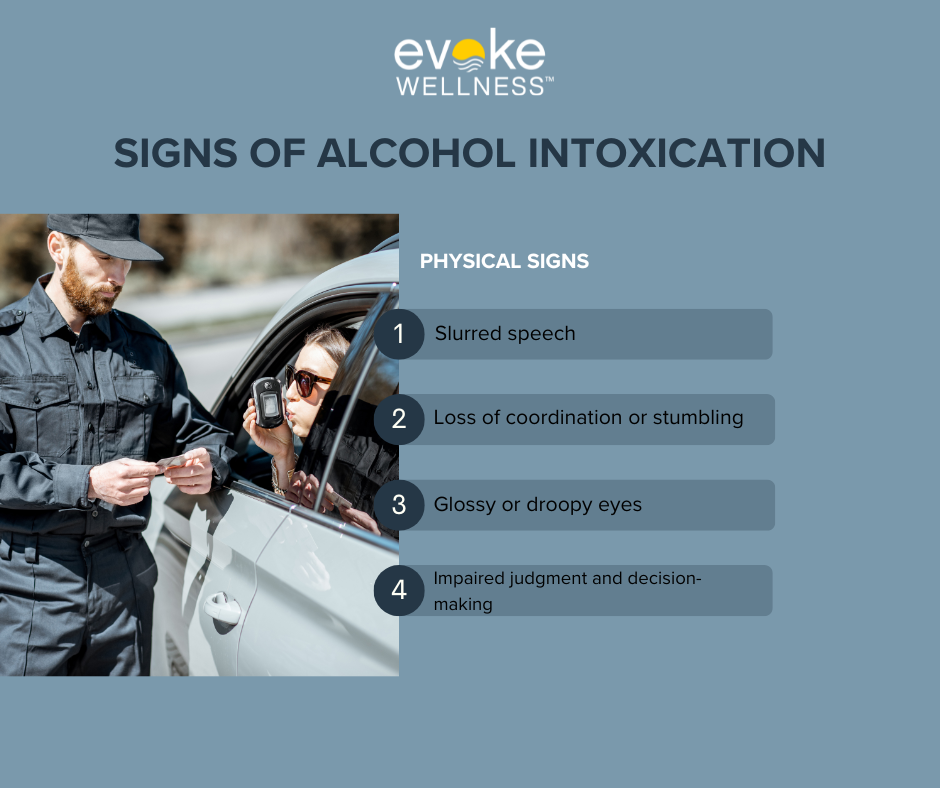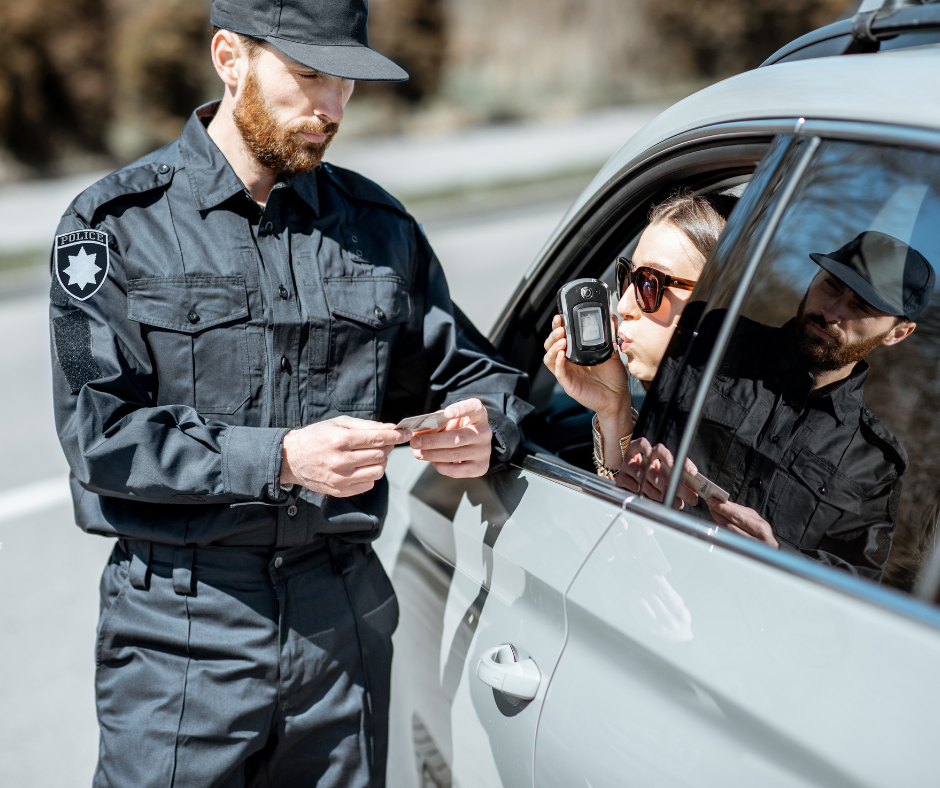Preparing for an alcohol sobriety test can be a daunting experience, especially if you’re unsure of what to expect. As you navigate this challenging process, it’s crucial to understand the implications and procedures involved. Recent studies show that approximately 1 in 8 American adults meet the criteria for alcohol use disorder, highlighting the prevalence of this issue. Whether you’re facing a court-ordered test or voluntarily seeking help, knowing how to prepare can make a significant difference in your journey towards recovery. This article will guide you through the essential steps, including information on alcohol detox programs and addiction treatment options, to help you approach your upcoming sobriety test with confidence and clarity.
Together, let’s embrace the journey to recovery and the promise of a new beginning. Call us at (833) 819-6066 today or reach out online.
Purpose Of Alcohol Field Sobriety Test
Alcohol field sobriety tests play a crucial role in ensuring road safety by helping law enforcement identify potentially impaired drivers. These standardized tests are designed to assess a person’s physical and cognitive abilities, which can be affected by alcohol consumption.
Assessing Impairment
The primary purpose of a field sobriety test is to determine if an individual is too impaired to operate a vehicle safely. It evaluates various skills, such as balance, coordination, and divided attention, all of which can be compromised by alcohol intoxication.
- Horizontal gaze nystagmus test: Tracks involuntary eye movements as indicators of impairment.
- Walk-and-turn test: Assesses balance and ability to follow instructions.
- One-leg stand test: Measures physical control and divided attention.
Establishing Probable Cause
In addition to assessing impairment, field sobriety tests provide probable cause for further testing or arrest. If an individual exhibits signs of impairment during these tests, law enforcement may proceed with a breathalyzer or chemical test to quantify the level of intoxication.
Limitations and Considerations
While field sobriety tests are valuable tools, it’s essential to recognize their limitations. Certain medical conditions, physical disabilities, or environmental factors can potentially influence test performance, leading to false positives or negatives.
Additionally, certain foods and beverages containing trace amounts of alcohol or other compounds can trigger false positive results on breathalyzers, even when an individual is not impaired. Understanding these nuances is crucial for accurate assessments and fair legal proceedings.
Components Of Alcohol Field Sobriety Test
When pulled over on suspicion of driving under the influence, officers will conduct a series of standardized field sobriety tests to assess impairment. The three main components are:
Walk and Turn
- You must take nine heel-to-toe steps in a straight line.
- Turn around on one foot and repeat the nine steps back.
- You must watch your feet and count the steps out loud.
- Officers look for issues maintaining balance, stepping off the line, or improper turn.
One Leg Stand
- You must stand with one foot about 6 inches off the ground and count out loud for 30 seconds.
- Officers check for swaying, using arms to balance, hopping or putting your foot down.
Horizontal Gaze Nystagmus
- An officer watches your eyes as you follow a moving object.
- They check for an involuntary jerking of the eyeball – a potential sign of impairment.
Officers consider performance on all three tests when determining if further action like a breathalyzer is warranted. Practicing the tests sober can help avoid failing due to nerves or physical issues.
The Three Field Sobriety Tests
Horizontal Gaze Nystagmus Test
- This test checks for involuntary jerking of the eyes, a sign of intoxication. The officer will have you follow a moving object with your eyes to look for this jerking.
Walk and Turn Test
- You’ll be asked to take nine heel-to-toe steps along a straight line, turn, and repeat the steps back. The officer observes for balance issues, starting before instructed, stopping while walking, or using arms for balance.
One Leg Stand
- This requires you to stand with one foot about six inches off the ground and count aloud until told to stop, typically for 30 seconds. Officers look for swaying, using arms to balance, hopping, or putting the raised foot down.
If you fail one or more of these standardized tests, the officer may have probable cause to arrest you for DUI or request further chemical testing. However, false positives can occur from certain foods, drinks, and medical conditions, so it’s wise to know your rights and legal options.
Signs of Intoxication

Alcohol causes the release of norepinephrine and dopamine, leading to lowered inhibitions, impulsiveness, and a desire to continue drinking. Binge drinking can result in blackouts where the individual experiences memory loss about the previous day or night.
Pupil Dilation
Pupil dilation is a common side effect of drug abuse and can indicate intoxication. Drugs affecting the nervous system like amphetamines, cocaine, LSD, and ketamine can cause involuntary pupil dilation. However, pupil size alone does not definitively prove substance abuse as certain medications can also dilate pupils.
Behavioral Changes
Chronic substance abuse often leads to drastic behavioral and personality changes. For example, Amy Winehouse’s alcoholism contributed to her untimely death in 2011 from alcohol poisoning. PCP intoxication causes bizarre behaviors like a blank stare, involuntary movements, and catatonic trances that can progress to dangerous side effects like seizures and coma.
Severely dilated pupils combined with nausea, dizziness or disorientation can indicate an overdose emergency requiring immediate medical attention and detox treatment. Professional addiction treatment programs offer medication-assisted therapies like methadone clinics to manage withdrawal safely.
Can You Fail a Field Sobriety Test While Sober?
Potential for False Positives
Even if you haven’t consumed any alcohol, certain foods and beverages can potentially cause false positive results on breathalyzer tests used in field sobriety checks. These include items like bread, pastries cooked with wine, ripe fruits, protein bars, sugar-free gum and even “non-alcoholic” beer or wine.
Other Contributing Factors
Beyond food and drink, other factors like medical conditions (diabetes, acid reflux) or medications/products containing alcohol (cough syrups, mouthwashes) may also trigger inaccurate breathalyzer readings. While designed to detect alcohol intoxication, these tests are not 100% foolproof.
Challenging False Results
If faced with a DUI charge from a false positive breathalyzer result, it’s important to challenge the test findings and present evidence of potential interferents like recent food consumption. There’s no reason someone should face conviction simply for eating certain foods or using alcohol-containing products as directed.
How Do Field Sobriety Tests Work?
Standard Testing Procedures
Field sobriety tests are a battery of physical and cognitive exercises that law enforcement officers use to assess potential impairment due to alcohol or drug intoxication. The standardized tests were developed and validated through extensive research sponsored by the National Highway Traffic Safety Administration (NHTSA).
- The three most common tests are the horizontal gaze nystagmus, walk-and-turn, and one-leg stand.
- Officers look for specific clues that indicate a breakdown in the suspect’s ability to follow instructions or complete divided attention tasks.
Evaluating Physical & Mental Impairment
The tests check for lack of smooth pursuit in eye movements, issues with balance and coordination, and inability to complete tasks successfully while intoxicated. Failing multiple tests provides evidence that someone should not be operating a vehicle.
Studies show the tests are highly effective when administered properly by trained officers. However, they are just one part of a comprehensive investigation into potential DUI cases. Officers also consider driving behavior, appearance, odors, statements, and results from chemical breath tests.
Limitations & Controversy
While standardized, the subjective nature of scoring the tests has led to controversies and challenges in court regarding their accuracy and impartiality. Medical conditions, age, and environmental factors can also potentially affect performance on certain tests.
Still, field sobriety testing remains a widely-used method for initially determining impairment levels during traffic stops across the U.S. Ongoing training aims to improve the reliability of the tests as an investigative technique.
Alcohol Sobriety Test FAQs
Getting Tested
Are you preparing for an alcohol sobriety test? Understanding the process can help alleviate anxiety. Common tests include breathalyzers, blood tests, and urine screenings. Breathalyzers measure alcohol concentration in your breath, while blood and urine tests detect alcohol metabolites. Expect a private setting and respectful treatment during testing.
Test Accuracy
Accuracy is crucial for sobriety tests. False positives, while rare, can occur due to factors like certain foods, medications, or medical conditions. If you suspect an inaccurate result, request a confirmation test. Reputable testing facilities follow strict protocols to ensure reliable outcomes.
Preparing for the Test
To prepare, avoid alcohol for at least 24 hours before your test. Drink plenty of water and get adequate rest. If taking medications, bring a list and prescriptions. Arrive early, stay calm, and follow all instructions carefully.
After Testing
If you test positive for alcohol, you may face legal or employment consequences. However, this can also be an opportunity to seek help for alcohol addiction. Evoke Wellness at Miramar offers comprehensive alcohol treatment programs, including alcohol detox, therapy, and aftercare support, to help you achieve lasting sobriety.
Remember, seeking professional treatment is a brave step toward reclaiming your health and well-being. With the right support, recovery is possible.
Conclusion
As you prepare for your upcoming alcohol sobriety test, remember that your health and future are at stake. By understanding the testing process and taking proactive steps to detoxify your system, you can approach the test with confidence. However, passing a sobriety test should be just the first step in addressing alcohol abuse. Consider seeking professional help through an alcohol detox and addiction treatment program. Recent studies show that individuals who complete comprehensive treatment are 50% more likely to maintain long-term sobriety. At Evoke Wellness at Miramar, we offer evidence-based programs tailored to your unique needs. Take control of your life today – your journey to lasting recovery begins with a single step.
Begin Your Journey with Evoke Wellness at Miramar
If you or a loved one is considering treatment, Evoke Wellness at Miramar invites you to contact us. Our compassionate team is ready to answer your questions, discuss your needs, and help you take the first steps toward recovery. In Miramar, you’ll find more than just a treatment program – you’ll discover a community dedicated to your wellness and success. Together, let’s embrace the journey to recovery and the promise of a new beginning. Call us at (833) 819-6066 today or reach out online.


